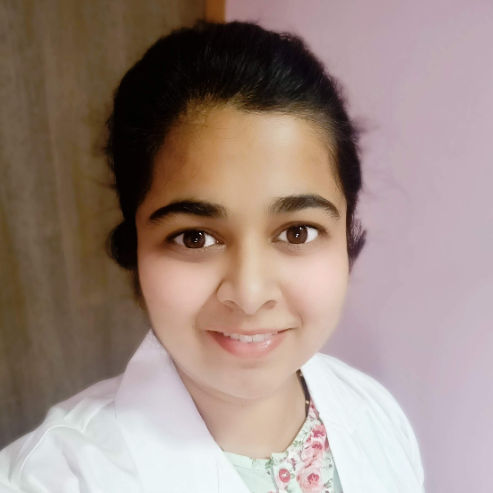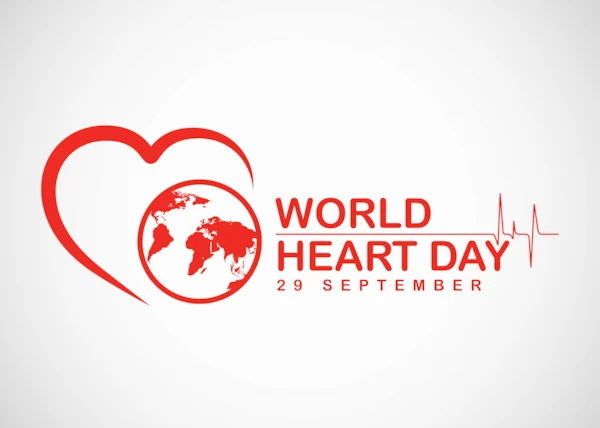All You Need to Know About Heart Disease
Learn about heart disease, including its symptoms, causes, diagnostic methods, and treatment options. Understand the risk factors, preventive measures, and effective strategies to manage heart health and improve overall well-being.

Written by
Last updated on 3rd Jul, 2025
Heart disease refers to a range of conditions that impact the heart's structure or function. Some forms, known as congenital heart disease, are present from birth, while others develop over time. When the heart cannot function efficiently, it struggles to deliver adequate oxygen, blood, and nutrients to the body, disrupting various systems in the body. The good news is that many heart conditions can be managed or prevented through a combination of healthy lifestyle choices and appropriate medications. This article explores the various types of heart disease, their causes, symptoms, and available treatments.
Types of Heart Disease
Heart disease encompasses various conditions affecting the heart and blood vessels. Common types include:
- Coronary Artery Disease (CAD): This condition occurs when the arteries supplying oxygen, blood, and nutrients to the heart become narrowed or blocked due to plaque buildup, a process called atherosclerosis. CAD, also known as ischemic heart disease, is the leading cause of heart attacks and is the most prevalent form of heart disease.
- Vascular Disease: Vascular diseases involve problems in the arteries or veins throughout the body, leading to reduced blood flow to certain areas. Symptoms vary based on the affected location. Atherosclerosis, caused by plaque buildup, is a common contributor to vascular disease.
- Heart Rhythm Disorders (Arrhythmias): Arrhythmias disrupt the heart’s normal rhythm, causing it to beat too slow, too fast, or irregularly. A healthy heart maintains a steady rhythm and rate, but arrhythmias can interfere with this, potentially affecting overall heart function.
- Congenital Heart Disease (CHD): CHD includes structural abnormalities in the heart that develop during fetal growth. These issues may involve the walls, chambers, valves, or major blood vessels. CHD can result from genetic or environmental factors and encompasses a wide range of conditions.
- Heart Failure: Heart failure is a long-term condition where the heart cannot function effectively or has structural abnormalities. It occurs when the heart becomes too stiff, too weak, or both, impairing its ability to pump blood efficiently. The most common causes of heart failure are high blood pressure and heart attacks.
Causes of Heart Disease
The causes of heart disease vary depending on the specific condition and may include factors such as lifestyle, genetics, infections, medications, and other health issues. Common causes include:
- Scarring of the heart muscle
- Kidney dysfunction
- Genetic conditions
- Thyroid disorders
- Infections, including severe non-cardiac infections
- Rheumatic diseases
- Heart injuries
- Ageing
- Heart attacks
- Pregnancy-related complications
- Autoimmune diseases
- Certain medications, such as specific chemotherapy drugs
- High blood pressure
- Substance use, including cocaine, alcohol, and methamphetamines
- Abnormal heart rhythms
Heart Disease: Risk Factors
Certain risk factors can increase the likelihood of developing heart disease. These include:
- Age: The risk rises with age as arteries can narrow, and the heart muscle may weaken or thicken.
- Family History: A family history of early-onset heart disease raises the risk, particularly if a male relative was diagnosed before 55 or a female relative before 65.
- Sex Assigned at Birth: Men generally have a higher risk of heart disease, though women’s risk increases after menopause.
- Unhealthy Diet: Diets high in salt, sugar, fat, and cholesterol are linked to heart disease.
- Smoking: Tobacco damages arteries, significantly increasing the risk of heart attacks. Quitting smoking can greatly reduce this risk.
- High Cholesterol: Elevated cholesterol contributes to atherosclerosis, increasing the risk of heart attacks and strokes.
- High Blood Pressure: Uncontrolled high blood pressure can thicken and harden arteries, reducing blood flow to the heart and body.
- Obesity: Excess weight exacerbates other risk factors, such as diabetes and high blood pressure.
- Diabetes: Diabetes heightens the risk of heart disease, particularly when combined with obesity or high blood pressure.
- Stress: Chronic stress can harm arteries and worsen other risk factors.
- Lack of Exercise: Physical inactivity is associated with heart disease and its risk factors.
- Poor Dental Health: Unhealthy teeth and gums allow bacteria to enter the bloodstream, potentially leading to heart infections like endocarditis.
Symptoms of Heart Disease
Symptoms of heart disease vary depending on the specific condition. In some cases, symptoms may not appear until a complication, such as a heart attack, occurs. Common symptoms include:
- Excessive sweating
- A pounding or racing heartbeat (palpitations)
- Lightheadedness
- Dizziness or sudden, unexplained fainting
- Shortness of breath
- Pain, heaviness, pressure, or discomfort in the chest or upper body
- Heartburn or indigestion
- Neck pain
- Swelling in the lower body
- Nausea or vomiting
- Persistent exhaustion
- Difficulty tolerating physical activity
- Trouble sleeping
- Fever
Consult Top Doctors For Heart Disease
Diagnosis of Heart Disease
Diagnosing heart disease typically involves a review of your medical and family history, a thorough physical examination, and various tests tailored to your symptoms. Common diagnostic tests include:
- Electrocardiogram (EKG or ECG): Records the heart’s electrical activity.
- Ambulatory Monitors: Tracks heart activity over an extended period.
- Echocardiogram (Echo): Uses ultrasound to visualize heart structure and function.
- Cardiac CT Scan: Provides detailed images of the heart and blood vessels.
- Heart MRI: Captures comprehensive images of the heart using magnetic fields.
- Blood Tests: Checks cholesterol, blood sugar, and other key indicators.
- Stress Test: Evaluates heart function during physical activity.
- Cardiac Catheterisation: Examines blood flow and pressure in the heart.
- Chest X-Ray: Helps detect structural abnormalities.
- Holter Monitoring: Continuously records heart rhythm for 24-48 hours.
Get Your Heart Disease Symptoms Checked
Treatment Options for Heart Disease
Treatment for heart disease depends on the specific condition and may involve medication, lifestyle changes, or surgical procedures. Common approaches include:
- Lifestyle Changes: Adjustments such as reducing saturated fats in your diet, quitting tobacco use, or starting a regular exercise routine like walking can significantly improve heart health.
- Medications: Drugs to lower blood pressure and cholesterol, as well as those to manage heart failure or irregular heart rhythms, are often prescribed. It's crucial to take these as directed by your healthcare provider.
- Surgeries or Procedures: Depending on the condition, treatments may involve open-heart surgery, ablation, minimally invasive procedures, stent placement, cardioversion, or catheterisation.
- Cardiac Rehabilitation: This supervised program combines monitored exercise, nutritional counseling, and lifestyle support to help strengthen the heart after events like a heart attack.
Prevention of Heart Disease
The lifestyle changes that help manage heart disease can also play a key role in preventing it. Here are some heart-healthy tips:
- Avoid Smoking: Quit smoking to reduce your risk of heart disease.
- Adopt a Healthy Diet: Choose meals low in salt and saturated fat.
- Stay Active: Aim for at least 30 minutes of exercise on most days of the week.
- Maintain a Healthy Weight: Keep your weight within a healthy range.
- Manage Stress: Practice techniques to reduce and manage stress effectively.
- Control Medical Conditions: Keep high cholesterol, high blood pressure, and diabetes in check.
- Prioritise Sleep: Adults should strive for 7 to 9 hours of quality sleep each night.
- Get Regular Screenings: Get a heart checkup periodically, especially if you have any risk factors of heart disease.
Complications of Heart Disease
Heart disease can lead to serious, often life-threatening complications, including:
- Heart failure
- Heart attack
- Cardiomyopathy
- Abnormal heart rhythms
- Stroke
- Cardiogenic shock
- Heart valve disease
- Cardiac arrest
- Kidney or liver damage
- Pulmonary hypertension
Conclusion
Heart disease encompasses a wide range of conditions that can significantly impact the heart's ability to function properly. While many forms of heart disease can develop over time due to factors like poor lifestyle choices, genetics, and other health conditions, they can often be managed or even prevented through early detection, healthy living, and medical intervention. Understanding the types, causes, symptoms, risk factors, and available treatment options is crucial for both preventing and managing heart disease. Early diagnosis and appropriate treatment are key to managing heart disease and preventing serious complications.
Consult Top Cardiologist
Consult Top Doctors For Heart Disease

Dr. Tripti Deb
Cardiologist
40 Years • MBBS, MD, DM, FACC, FESC
Hyderabad
Apollo Hospitals Jubilee Hills, Hyderabad

Dr. Zulkarnain
General Physician
2 Years • MBBS, PGDM, FFM
Bengaluru
PRESTIGE SHANTHINIKETAN - SOCIETY CLINIC, Bengaluru

Dr. Janjirala Seshivardhan
Cardiologist
7 Years • MBBS,DNB(GM),DM(Cardiology)
Manikonda Jagir
Apollo Clinic, Manikonda, Manikonda Jagir

Dr Nazneen Khan
Cardiologist
7 Years • M.B.B.S, M.D (MEDICINE), DrNB CARDIOLOGY
Pune
Apollo Clinic, Viman Nagar, Pune

Dr. E Prabhakar Sastry
General Physician/ Internal Medicine Specialist
40 Years • MD(Internal Medicine)
Manikonda Jagir
Apollo Clinic, Manikonda, Manikonda Jagir
(125+ Patients)
Consult Top Cardiologist

Dr. Tripti Deb
Cardiologist
40 Years • MBBS, MD, DM, FACC, FESC
Hyderabad
Apollo Hospitals Jubilee Hills, Hyderabad

Dr. Zulkarnain
General Physician
2 Years • MBBS, PGDM, FFM
Bengaluru
PRESTIGE SHANTHINIKETAN - SOCIETY CLINIC, Bengaluru

Dr. Janjirala Seshivardhan
Cardiologist
7 Years • MBBS,DNB(GM),DM(Cardiology)
Manikonda Jagir
Apollo Clinic, Manikonda, Manikonda Jagir

Dr Nazneen Khan
Cardiologist
7 Years • M.B.B.S, M.D (MEDICINE), DrNB CARDIOLOGY
Pune
Apollo Clinic, Viman Nagar, Pune

Dr. E Prabhakar Sastry
General Physician/ Internal Medicine Specialist
40 Years • MD(Internal Medicine)
Manikonda Jagir
Apollo Clinic, Manikonda, Manikonda Jagir
(125+ Patients)



